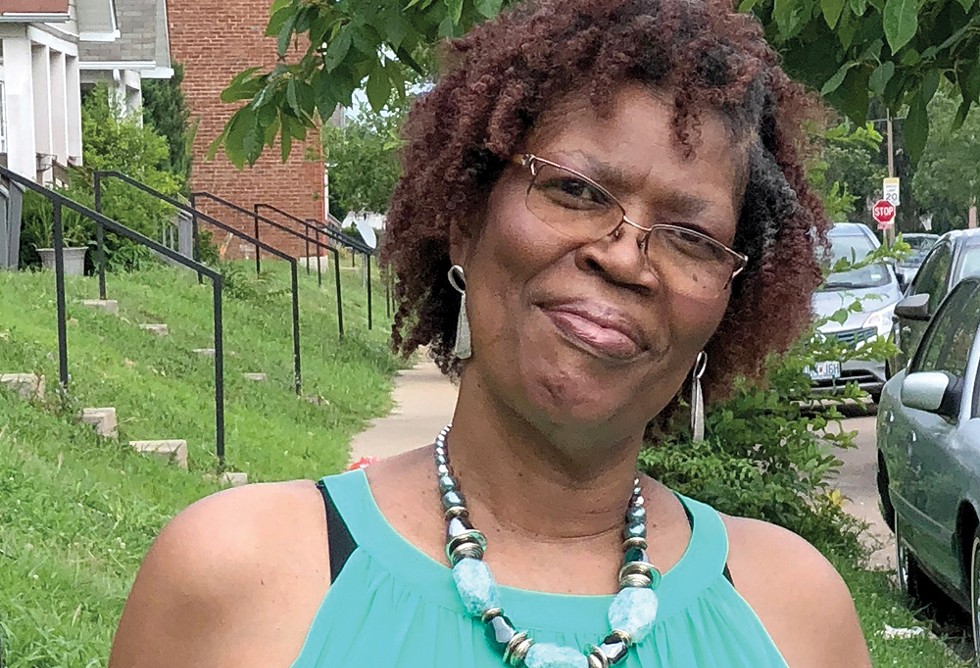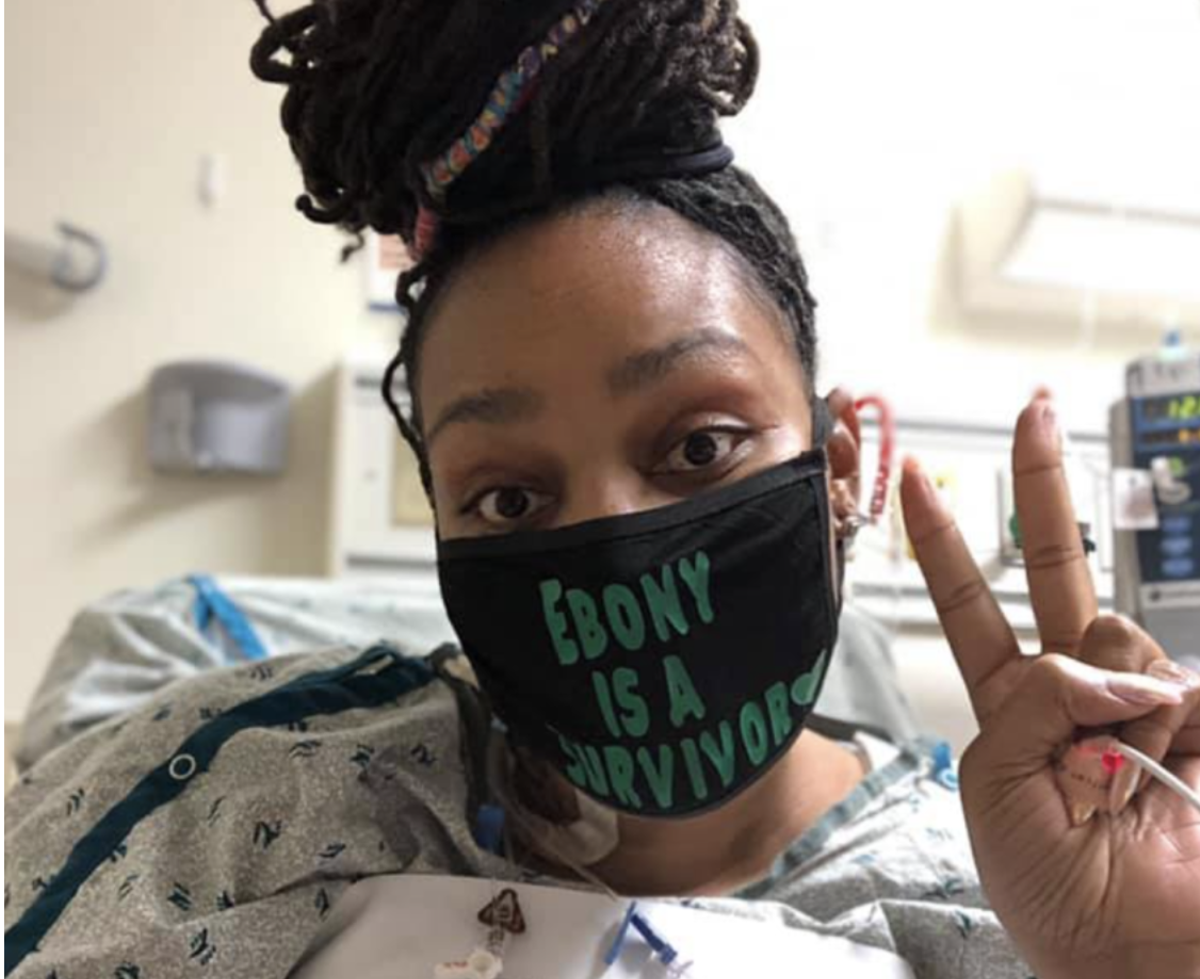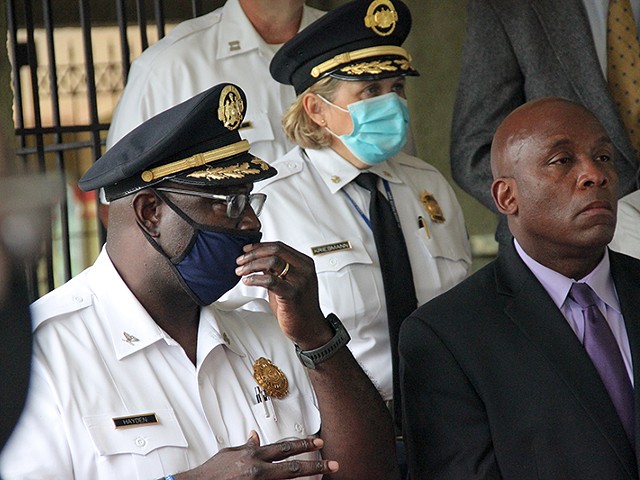Fortunately, Smith-Thomas rebounded strongly after getting treatment. She sailed through school and on to college, earning high marks along the way. "My mom never let me [use lead poisoning] as a crutch," she recalls. "When computers came out, I probably was the only kid who had a computer. She got me Hooked on Phonics. She said, 'Your number-one job is getting your education.'"
Back in the day, it was common to use the phrase "mentally retarded." As she grew up, Smith-Thomas sometimes heard it applied to her. It carried a special sting, because she was smart — and knew it. She is resilient and determined, too.
"I did college because I was told that I wouldn't be able to go to college," Smith-Thomas says. "I felt like I had to prove the doctors wrong. And I did."
In 2003, she landed a job with Follett Education Group. She worked in the bookstore Follett operated at Harris-Stowe State University while earning her bachelor's degree at the university. By 2010, while working on earning dual master's degrees at Webster University, Smith-Thomas had been promoted to store manager.
The work was complicated and stressful, requiring at once great people skills and IT know-how. But it would fill her with joy to see the students who she supplied with their texts freshman year come into the store years later to pick up their mortarboards and gowns.

Momma to the rescue
Then in 2016, on a warm day in late May, Smith-Thomas' world turned upside down. It had been just two months since she birthed her second child, Clayton — or Clay-Clay as family and friends affectionately call him. Smith-Thomas was living in an apartment in the Hyde Park neighborhood in north St. Louis, along with her two sons and two nieces, when the air-conditioning failed. They packed up and moved in for what they hoped would be a short stay with Smith-Thomas' mom and dad at their home a few miles west in the Jeff-Vander-Lou neighborhood. That night, Debbie Thomas-Smith noticed her daughter sleeping fitfully and heaving with a dry cough. "There's such a thing as walking pneumonia," she told Smith-Thomasthe next morning. "And that could kill you."
At first, Smith-Thomas remembers thinking, "Well, nursing new moms generally don't sleep all that well."
But her own mom had always been on high alert when it came to her youngest daughter's health. Family members called her Dr. Webbie Smith, as in WebMD, because, as Smith-Thomas puts it, "if she doesn't know [about an illness], she is going to find it and figure it out. She reads and reads."
And so when it comes to her health, Smith-Thomas says, "There's nothing I feel like my momma don't know."
It turned out, Dr. Debbie/Webbie had been right.
After several hours at an urgent-care center where tests confirmed pneumonia, Smith-Thomas was taken to Barnes-Jewish Hospital. There, more tests revealed something worse: peripartum cardiomyopathy, or PPCM. The life-threatening illness affects women who are either in the last month of pregnancy or first few months after delivery.
"I am glad you came in," Smith-Thomas recalls a physician telling her, "because your heart was going to eventually stop pumping."
Smith-Thomas battled the illness for three years, until yet another health crisis, when a blood clot traveled to her lung. "It felt like elephants were sitting on me," she says. Over the next several weeks, Smith-Thomas lost 60 pounds. In October 2019, doctors put her on a list for a heart transplant, which she received in August 2020.
"I made it," she said when she awoke from the nearly 23-hour surgery.
Just three weeks later, Smith-Thomas would undergo open-heart surgery to address a blood clot in her new heart.
"I made it," she would sigh again.
In the meantime, both Smith-Thomas and her mother were doing their homework. Smith-Thomas had taken part in a support group of women with PPCM, where she learned a lot more about the illness — but also had to deal with a lot of sadness, as some members of the group were dying.
One thing she learned was that PPCM falls more heavily on people of color. A study published in the Journal of the American Medical Association in 2017 reported that African American women "presented with more severe cases of PPCM, recovered less frequently and took at least twice as long to recover despite apparent adequate treatment when compared with their non-African American counterparts."
Smith-Thomas resolved that once she got better she would start a nonprofit that would educate, help and support women with PPCM, and urge others to become registered organ donors.
What she has only recently learned is that there is also research suggesting that lead poisoning may play a role in cardiovascular disease even years after exposure.
So it's possible — though it would be hard to prove — that Smith-Thomas dodged a lead-poisoning bullet three decades ago, only to have it circle the Earth and take her down in the prime of her life.







